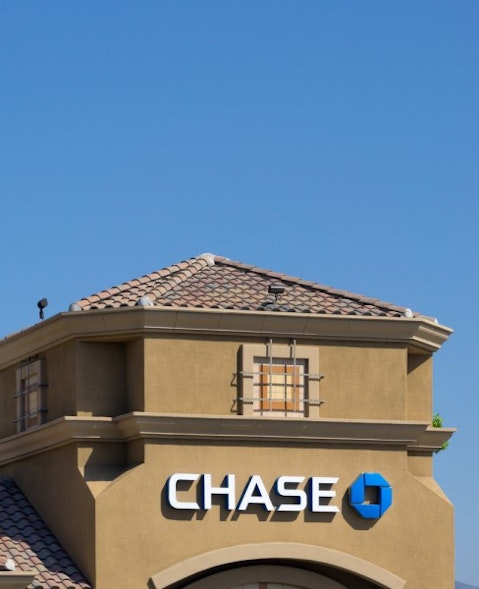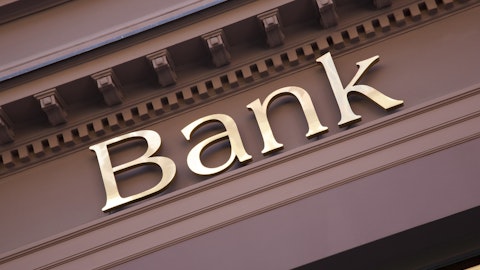Crude futures are off sharply today as fears that Brexit will lower demand for the commodity resurface. Not surprisingly, all three indexes are also lower this morning. In this article, we’ll take a closer look at five banking stocks that are making noise today: Bank of America Corp (NYSE:BAC), Citigroup Inc (NYSE:C), Morgan Stanley (NYSE:MS), Goldman Sachs Group Inc (NYSE:GS), and Barclays PLC (ADR) (NYSE:BCS). We’ll examine how elite funds are positioned in these stocks, and how they are being traded coming out of the long weekend.
At Insider Monkey, we track around 765 hedge funds and institutional investors. Through extensive backtests, we have determined that imitating some of the stocks that these investors are collectively bullish on, can help retail investors generate double digits of alpha per year. The key is to focus on the small-cap picks of these funds, which are usually less followed by the broader market and allow for larger price inefficiencies (see the details here).

Ken Wolter / Shutterstock.com
Barron’s Bullish on Banks, Asset Managers
The financial magazine Barron’s published a bullish piece on several banks this weekend. In the subscriber-only article ‘Bargain Banks: Goldman Sachs, Citi, JPMorgan’, the author Andrew Bary observes that many of the big banks trade for considerable discounts despite the fact that they are in great condition. Specifically, Mr. Bary notes that Bank of America Corp (NYSE:BAC), Citigroup Inc (NYSE:C), Morgan Stanley (NYSE:MS), and Goldman Sachs Group Inc (NYSE:GS) shares have collectively retraced almost 20% year-to-date while the S&P 500 has rallied by 3% during the same time frame. Mr. Bary thinks the divergence makes the banking stocks “one of the best values in the market,” especially given that the latest round of regulatory stress tests has allowed many of those banks to return around two-thirds of their income to shareholders through buybacks and dividends. Given that many of those banks trade for P/E multiples of around 10, the valuation and capital returns make many of the bank stocks compelling in Mr. Bary’s eyes. Although there is a lack of catalysts given the low interest rates, many banks have strong balance sheets and all four banks mentioned trade below their tangible book value.
Follow Bank Of America Corp (NYSE:BAC)
Follow Bank Of America Corp (NYSE:BAC)
Receive real-time insider trading and news alerts
On the next page, we analyze how hedge funds are positioned among the four banks and also take a closer look at why Barclays is also drawing interest on Tuesday.
Of the 766 elite funds that we track, 110 funds owned $5.52 billion worth of Bank of America Corp (NYSE:BAC), which accounted for 4.00% of the stock’s float on March 31. The 110 funds make Bank of America the smart money’s favorite banking stock out of the five covered in this article. Following Bank of America is Citigroup Inc (NYSE:C), with 101 funds holding shares of the company at the end of March. Goldman Sachs Group Inc (NYSE:GS) is third with 69 elite funds reporting long positions in the bank as of the end of the first quarter. Morgan Stanley rounds out the four banks mentioned in the Barron’s piece, as 52 elite funds reported being long the stock as of the most recent 13F reporting period.
Ex-Barclays Traders Found Guilty
Barclays PLC (ADR) (NYSE:BCS) is in the news after a jury found three ex-Barclays traders: Jonathan Mathew, Jay Merchant, and Alex Pabon, guilty of manipulating the Libor rate. Along with the Federal Funds rate, the Libor rate is one of the most important rates in the world. Small moves in the rate can raise the price of mortgages, financial product yields, and other securities, which can negatively affect many income-sensitive and financially-strapped investors. Given that Barclays has paid hundreds of million of dollars in penalties for its role in fixing the rate, it is safe to say that other traders will likely avoid attempting to manipulate the rate going forward. Shares of Barclays are off by 4% today, mainly due to renewed Brexit concerns. 12 top funds in our database owned shares of Barclays PLC (ADR) (NYSE:BCS) at the end of March, unchanged from the end of 2015.
Receive real-time insider trading and news alertsFollow Barclays Plc (NYSE:BCS)
Follow Barclays Plc (NYSE:BCS)
Disclosure: None




